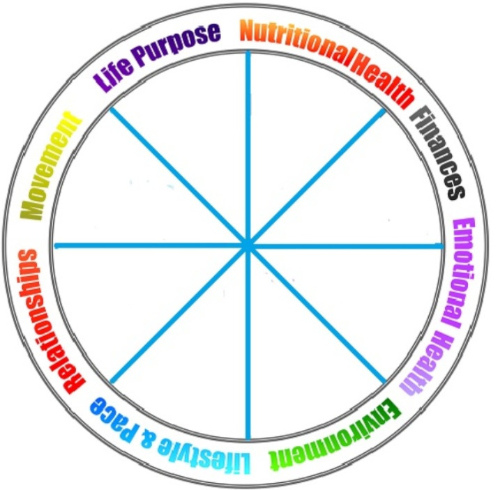Supporting your recovery from Chronic Fatigue / ME
Posted on
Supporting your recovery from M.E, Chronic fatigue or Fibromyalgia
 Whether you’ve just been diagnosed or have suffered for some time, it can feel like an overwhelming and lonely journey to recovery. You may be feeling as if life as you knew it is a distant memory and you may not know how to get it back. I view health as like a jigsaw; the pieces are all there, it’s just a matter of putting them back together and making sense of how they fit. By supporting your recovery, I will help you regain control, empower you to make adjustments to your lifestyle and help you get answers to why your body isn’t working.
Whether you’ve just been diagnosed or have suffered for some time, it can feel like an overwhelming and lonely journey to recovery. You may be feeling as if life as you knew it is a distant memory and you may not know how to get it back. I view health as like a jigsaw; the pieces are all there, it’s just a matter of putting them back together and making sense of how they fit. By supporting your recovery, I will help you regain control, empower you to make adjustments to your lifestyle and help you get answers to why your body isn’t working.
Click here to listen to Janie speaking about her specialist work on a recent podcast.
How will this support benefit me?
Personalised, step by step approach – Everybody’s situation is unique to them, paying attention to your individual needs and breaking down the stages of support into easy to manage steps is key.
Supported monthly plan that is flexible – By regularly revisiting your plan and progress, we are able to closely monitor positive changes and adapt strategies when necessary. This enables you to gain control over the changes we make throughout the stages of recovery and gives greater flexibility to respond to any changes as you progress.
Clear direction forward – Once your key areas of focus are identified, it is important that the process is seen as a positive, forward facing approach to supported recovery. This allow you to identify the positive changes that are happening and encourages you to gain a better understanding of how your body is reacting.
Relief from a cascade of symptoms – Importantly, you want to feel relief from the symptoms you are experiencing. By prioritising the areas to foucs on and creating a proactive plan to make changes, you are able to break free of the cycle of pain and fatigue and highlights the trigger points to prevent further complications.
Finding the missing link in your recovery – With so much information available and so many avenues to explore, it can leave you feeling unsure of where to turn next and unable to identify what changes have worked so far. It can also leave you with gaps in your knowledge. My support and guidance will help you find those missing links and teach you how to identify what is or isn’t working.
Getting answers through testing – There are many tests available that can help build a better understanding of your physical causes or areas to support such as food intolerance tests, stool testing and heavy metal toxicity tests are just some examples.
Multi-faceted approach – As well as focussing on your physical health, it is important to identify potential triggers within your emotional environment as stress and anxiety can often exacerbate problems and manifest as physical symptoms. Working with other specialist practitioners within my team, will help you to identify and release any emotional blocks in your recovery.
How can The Wellbeing Wheel help me?
 The Wellbeing wheel is made up of eight elements, from Nutritional Health to Life Purpose, aiding us to identify the areas in your life that need addressing. As your support mentor/coach I will be working within a team of specialist practitioners to create a joined up approach to addressing all areas associated with your supported recovery. As your lead practitioner, I may refer you to other specialists who will help you make changes in identified areas, whilst I guide and oversee your progress. We will then reflect regularly on what is working and what needs to further improve to help you take ownership of managing your own care and empowering you to make decisions that will help to improve your health.
The Wellbeing wheel is made up of eight elements, from Nutritional Health to Life Purpose, aiding us to identify the areas in your life that need addressing. As your support mentor/coach I will be working within a team of specialist practitioners to create a joined up approach to addressing all areas associated with your supported recovery. As your lead practitioner, I may refer you to other specialists who will help you make changes in identified areas, whilst I guide and oversee your progress. We will then reflect regularly on what is working and what needs to further improve to help you take ownership of managing your own care and empowering you to make decisions that will help to improve your health.
What is causing my pain?
It maybe as simple as a mineral deficiency, or is their a high level of toxic substances in the body? Or could it be a build up of lactic acid causes pain? Or even a blocked emotional response? These will be explored in much more detail.
Why is it that some days I feel ok and then exhausted on others?
Delayed fatigue is very common in these conditions, frustrating for you to live with and confusing to those around you . Understanding why this is happening in the body is a complete light-bulb moment and a relief to have some answers. It's all to do with your mitochondria (your batteries producing your energy in the body). Through coaching you to become more self-aware of your energy levels, what builds your energy and what drains your energy on a day to day bassis, will help you short term to manage what energy you have and to minimise your 'energy crashes'.
How long will it take for me to recover?
Each person's recovery journey is an individual and personal one. It depends on many factors such as how long you have been ill, how many areas of wellbeing are affected, how smoothly and quickly areas of wellbeing are adjustable and how effectively changes and adaptations are made. Many begin to notice some improvements within six months.
Is stress the cause of my illness?
Stress certainly doesn’t help as it can exacerbate other ailments, deplete the body of nutrients and further exhaust you. Learning to manage your stress is an important part of recovery. When you are stressed the body is in a 'Fight or Flight' response, to heal the body needs to be in a restful state.
How can I reduce my stress?
Relaxation techniques such as breathing exercises and yoga can be a huge benefit to reducing stress and anxiety levels. I can highly recommend practitioners who can help you to learn to relax, rest and restore encouraging the body's natural healing.
What other questions do you have about your recovery?
There are many areas of your health that we can explore to turn an overwhelming and sometimes scary situation into a positive supported recovery plan that allows you to move forward with your life, empower you with your decisions and take ownership of your health.
You can recover and I am here to support you.
Find out more about my Specialist ME/CF/Fibromyalgia Support Service or book in for a free 30 minute discovery call here
Common Symptoms of ME/Chronic Fatigue and Fibromyalgia
|
Persistent exhaustion or ‘fatigue’
|
Having flu-like symptoms ‘General malaise’ |
|
Pain |
Recurrent sore throat Swollen glands Aching muscles or joints Headache or migraine Twitching muscles or cramps Abdominal pain Muscle pain |
|
Sleep disturbance |
Un-refreshing sleep Difficulty getting off to sleep Waking for long periods in the early hours Light, restless sleep Day/Night reversal Hypersomnia (sleeping for a long time) |
|
Problems with concentration/memory |
Reduced attention span Short-term memory problems Word-finding difficulties Inability to plan or organise thoughts Loss of concentration |
|
Mood |
Frustration Anxiety Panic attacks Low mood, depression Mood swings and irritability |
|
Problems with nervous system |
Poor temperature control Dizziness on standing up Hyper-sensitivity to light and sound Sweating Loss of balance |
|
Digestive issues |
Nausea Loss of appetite Indigestion Excessive wind/bloating Abdominal cramps Alternating diarrhoea and constipation |
|
Intolerance and increased sensitivity |
Bright lights Noise Odours Food intolerances Some medications Alcohol Caffeine Other substances Women often find that symptoms worsen at different times in their menstrual cycle |

 Food is the basis of our health; it provides the fuel to run our bodies. Put simply: “poor foods = poor fuel” which leads to reduced energy and imbalances.
Food is the basis of our health; it provides the fuel to run our bodies. Put simply: “poor foods = poor fuel” which leads to reduced energy and imbalances. Clues might include:
Clues might include: